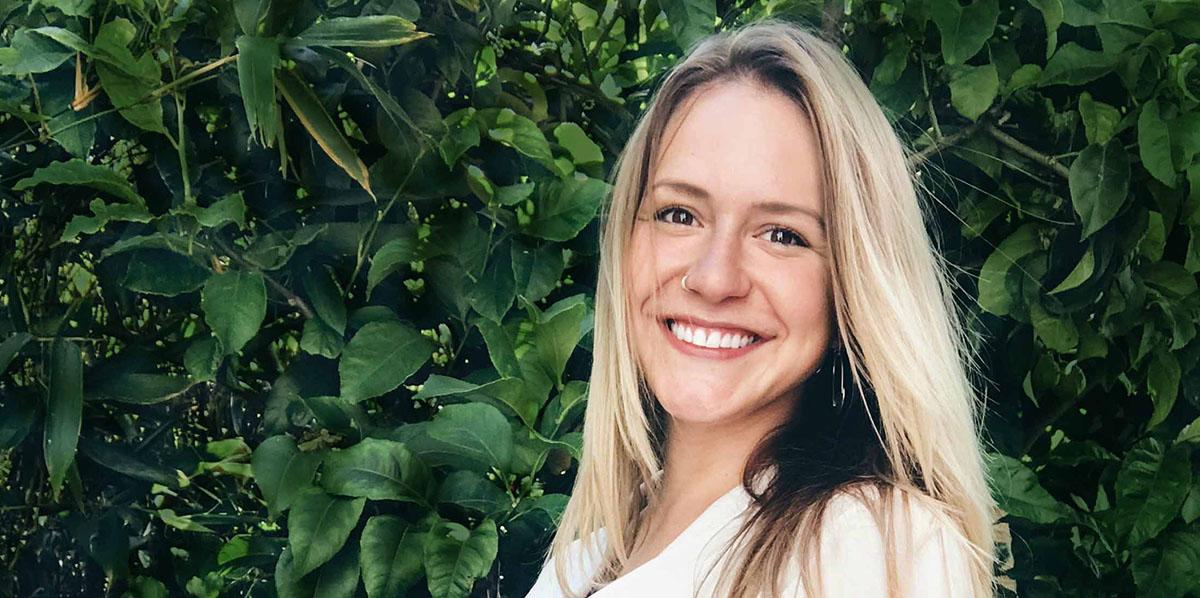“To me it felt like a rare move—most of my friends moved away—but I was able to stay connected with the community I had built including professors, local business owners, and people who tended to be a couple years older than I was and who were generous and willing to teach me things or at least allow me to learn from them.”
The choice has paid dividends. Nielson now works for Google as a user experience researcher (UXR).
So, how did Nielson transition from studying anthropology in Duluth to performing research for Google in Silicon Valley? She may answer that she got lucky, but credit should also go to Nielson’s intuition and willingness to try new things, learn from her experiences, and adjust appropriately.
After her time at UMD ended, she didn’t want to go to graduate school and immediately burn out, but she also didn’t know about research jobs outside of academia. So, Nielson worked on a farm where she learned about systems thinking (“I still use that today,” she noted), at the Zinema Theatre, as well as at Vilkre Distillery where she worked in branding and sales.
She also embarked on the humbling opportunity to go to Ecuador to work as an assistant for Dr. David Syring (Anthropology). The trip was “life-changing” for Nielson who was “able to work as an ethnographer and see what research on the ground and in this case, collaborative, community focused, participatory, media-based research [looks like]. It has a lot of power and potential benefits for communities.”
The trip additionally motivated her to keep looking for research opportunities. A coffee shop conversation with (now retired)Professor Rob Wittig (English, Linguistics, and Writing Studies;
Art & Design) was the spur she needed for her next career move. He recommended she “look into Silicon Valley; they hire anthropologists.”
“It blew my mind,” reflected Nielson, “and look at me. I actually do that. But if no one had told me that, I wouldn’t have known.”
As a UXR, Nielson focuses on products and how people use them. She explained: “[After] talking to a bunch of people who use a product or potentially would use a product,...I inform product teams of what people really want and need and what their experiences are using those products so the team can make them better–often that means [making them] more usable, even more ethical.”
Nielson sees this work as a way of intentionally improving the world, which is a consistent goal of hers. She credits her knowledge of research methodologies, developed while at UMD, as a key feature of her daily efforts: “The consciousness of being aware of when, why, and how to apply a certain methodology and being aware of your own bias is critical to being good at my job.”
Nielson elaborated: “I want to keep doing and using research as a force for positive good….The most important and rewarding thing to me [is] changing technology processes or creating something that empowers people through understanding….When I started working as a UXR, I thought doing a research project about something minor wasn’t important, but after a few years, I’ve realized that if I’m saving a million people one minute, that’s a good thing, because then they can get back to their lives.”
Conversely, it seems her work has also benefited her life. In reflecting on the best part of her career trajectory, Nielson was direct: the people she has met. “It’s a privilege to talk to them and have these corners of the universe unfolded and described to you through other sets of eyes. As a researcher, I remind myself everyday that it’s no small thing to be let into their lives. You need to honor it and do no harm.”
When asked what advice she would give to UMD students, Nielson stated, “When it comes to liberal and fine arts degrees, people don’t always know what you’re doing or why you’re doing it, but do what you think is right. Work hard and it will work out. And especially for the anthropology majors out there: Own it. The skills that you have are of value. You may need to translate those skills, but be stoked you have them. [They give] people the opportunity to understand one another while benefiting the communities or people that they’re working with. What the heck else do we have to work for here? Connectivity, collectivism, and collaboration: that’s how my major connects with the idea of shaping the future.”
